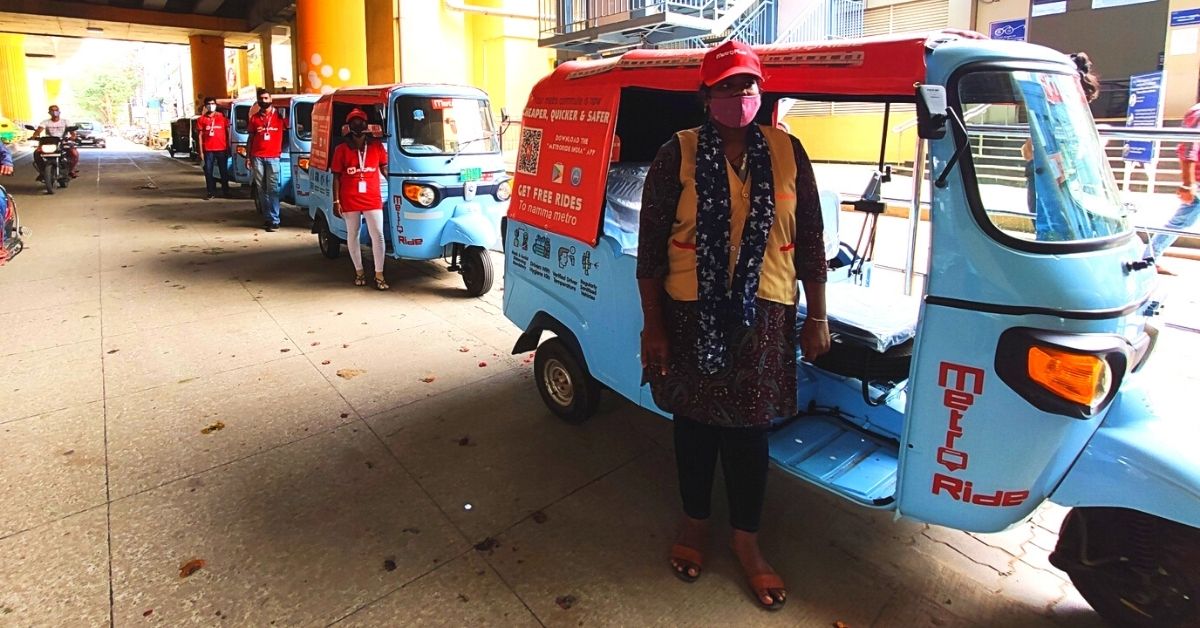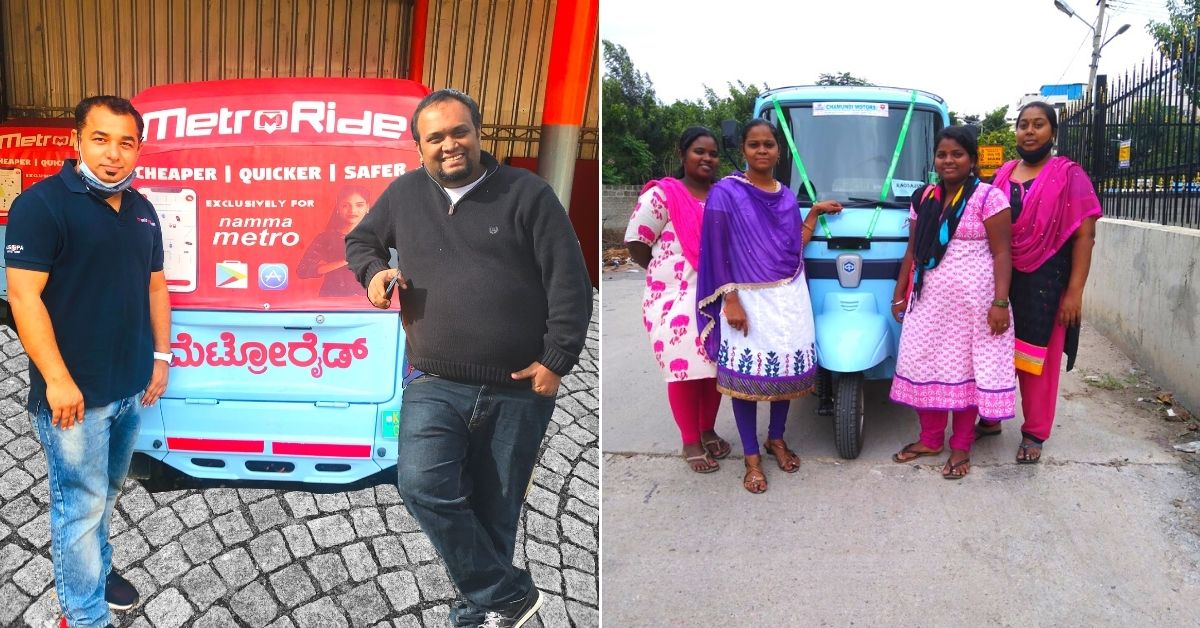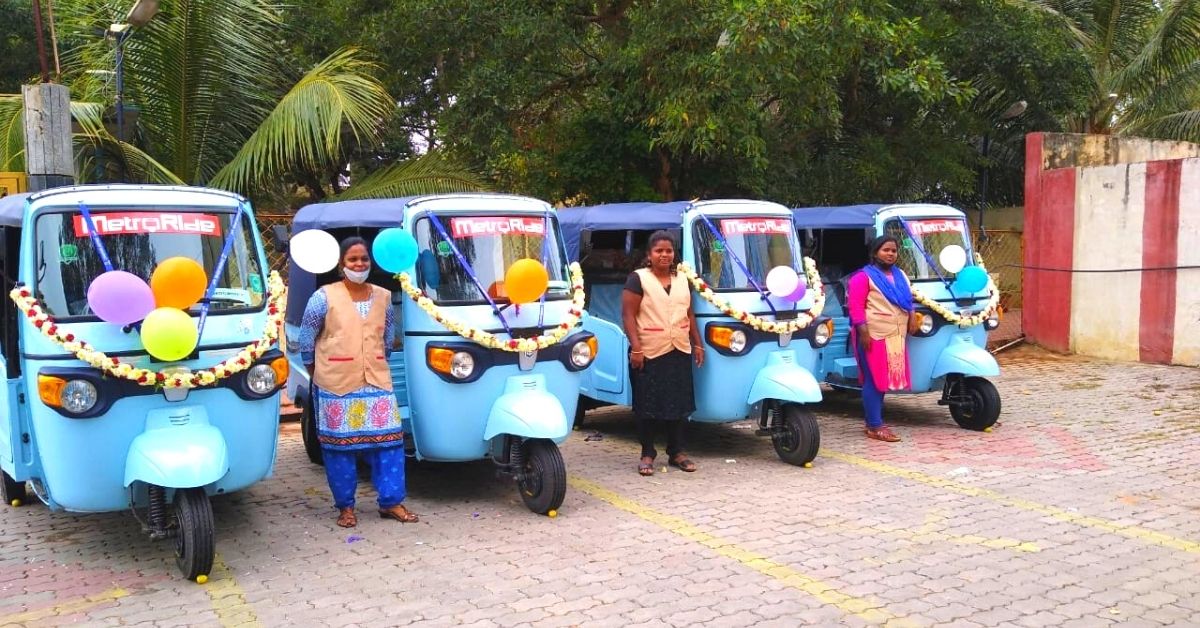While the metro rail system has significantly enhanced the public transportation system in many big Indian cities, reaching the station is a problem commuters are still struggling with.
While taxi drivers often cancel rides since they don’t want to cover such a minimal distance, conventional auto rickshaws either don’t come to the desired destination or demand a fare higher than stated on their meter.
This is a problem that Girish Nagpal, a south Bengaluru-based entrepreneur, was facing while using the Namma Metro service from the JP Nagar station to his office in the Central Business District (CBD) area. Unsurprisingly, Girish’s long time friend and fellow Silicon Valley-based entrepreneur Kaaman Agarwal also faced a similar problem while using the Bay Area Rapid Transit (BART) to reach the city of San Francisco.
Wondering whether this was a problem that only they faced, Girish and Kaaman say they spoke to over 400 metro commuters in India and the US. This helped the duo realise that this issue was more common than they thought.
“We met last year sometime around January and found a common problem – lack of a solution to get to the metro station during peak hours, both in India as well as the US. This is where the idea of MetroRide was born,” says Girish, in a conversation with The Better India.

Launched earlier this year, MetroRide, a Bengaluru-based artificial intelligence (AI)-driven electric mobility platform, is a first and last mile ride hauling service that connects you from metro stations to high frequency destinations. It operates through an AI-powered cloud-based application to provide “100 per cent green (electric vehicle) travel solutions” to its customers.
“MetroRide focuses on daily commuters who take the metro train to get to work, school, or college. We are the only 100% electric first and last mile mobility platform that uses AI to make rides for our commuters faster, cheaper and safer. We have developed a proprietary AI engine called VIKI. Every process in our business is driven by VIKI. From booking a ride using an AI-enabled Chatbot to identifying the most efficient driving route, matchmaking a woman rider with a woman driver, human detection inside the vehicle, and avoiding fraudulent rides, everything is executed using VIKI,” says Kaaman.
The startup uses electric three-wheelers with a capacity to seat two passengers and a partition to ensure adequate distance to ferry passengers to and from the metro station. Soon, they will start a similar service in the United States with electric cars.
“We cater to a 5 km radius from the metro station and our average fare in Bengaluru is Rs 18. Currently, about 20% of our fleet is run by women. We are always exploring partnerships to help us onboard more women. We currently operate in Noida, Delhi and Bengaluru,” Girish explains.
Most of their vehicles use swap batteries, and the process takes a few minutes. The fixed battery vehicles, however, need three to five hours for a full charge. The vehicles operate from 8 am to 9 pm currently, but are “soon extending operational hours, as requested by a lot of customers”, according to Girish.

How does it work?
So if you’re living in one part of the city, and you work in another part, your best bet to avoid traffic is to take a metro train to the closest station near your office. So where does MetroRide figure in here?
As Kaaman breaks it down, all you would have to do is open the MetroRide app and book a ride to a nearby station. The app will show you a nearby pickup spot where our electric vehicles can pick you up from, and drop you to the station. These are the same steps you can take when you reach a station near your office. MetroRide charges Rs 10 for the first kilometer and the fare goes up to a maximum of Rs 30 for the entire ride. “Our average wait time to get picked up is close to two minutes, which is way better than the industry average of 12-15 minutes,” he notes.

And the demand for commutes on MetroRide is only expanding. Even though their number of electric three-wheelers and drivers isn’t very high, in the 150 days since they have launched, the startup has garnered over 1,40,000 riders, founders say. The company has also won several national and international awards including the NASSCOM Mobility Challenge 2020 and the EV Charge Leadership Award for the ‘Smart Cloud Connected Platform of the Year’ for its innovative approach in addressing the issue of urban mobility.
To facilitate their expansion, MetroRide recently announced a seed funding from angel investors spread across Silicon Valley, New Jersey, and India, including senior global executives like Shailesh Powdwal, Sudhir Pai, Bhagirath Tanna and successful serial entrepreneur Sushant Divakar. “We have, so far, completed our Pre-Seed and Seed rounds of investment and will soon be closing our Pre-Series A round. To expand our ridership and scale, we follow a templatised approach to keep launching stations frequently,” says Girish.
(Edited by Divya Sethu)
No comments:
Post a Comment